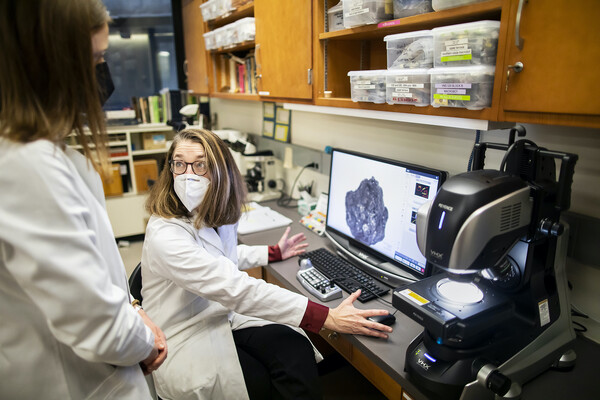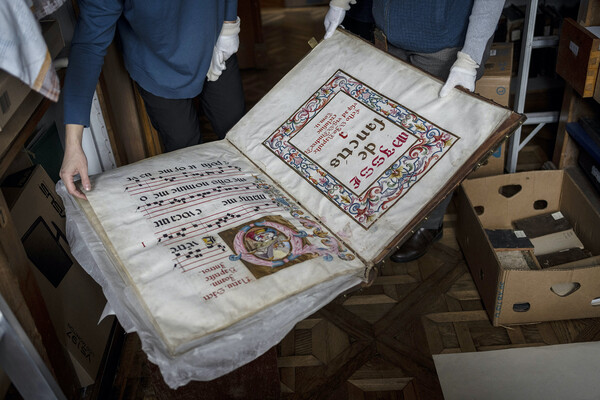
Workers at the rare manuscripts and old printed books department of the Andrey Sheptytsky National Museum store them in cardboard boxes to reduce the risk of damage in the event of an attack in the western Ukrainian city of Lviv, Friday, March 4, 2022. (Image: AP Photo/Bernat Armangue)
AP Photo/Bernat Armangue



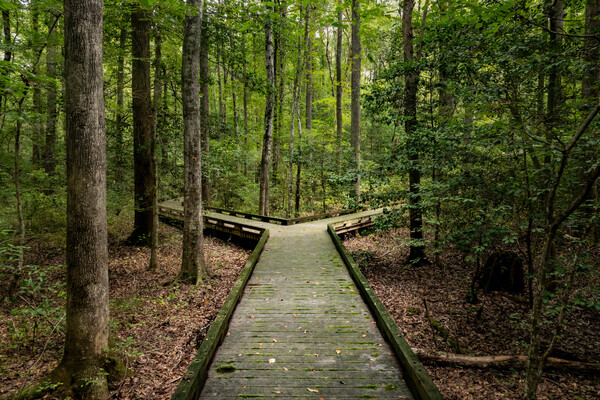
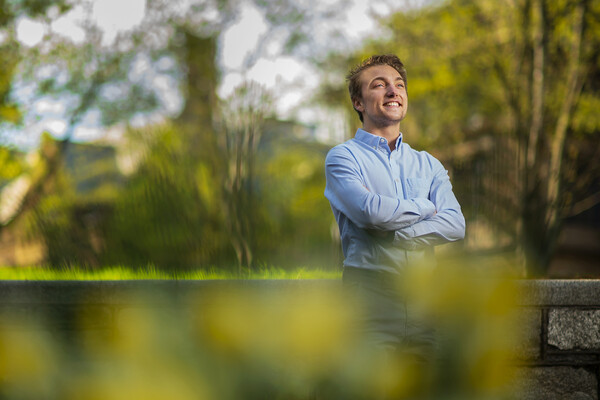


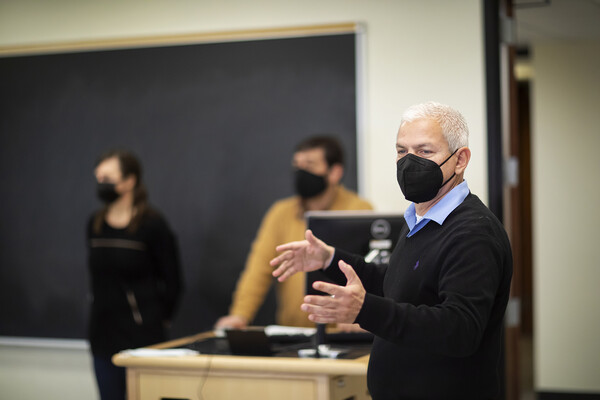 The 22 students in Emilio Parrado’s Academically Based Community Service course on Latinx in the United States will mentor high schoolers who are part of the Centro de Cultura Arte Trabajo y Educación (CCATE) college-readiness program. Here Parrado describes the next steps to the class, with CCATE’s Holly Link and Obed Arango in the background.
The 22 students in Emilio Parrado’s Academically Based Community Service course on Latinx in the United States will mentor high schoolers who are part of the Centro de Cultura Arte Trabajo y Educación (CCATE) college-readiness program. Here Parrado describes the next steps to the class, with CCATE’s Holly Link and Obed Arango in the background.
